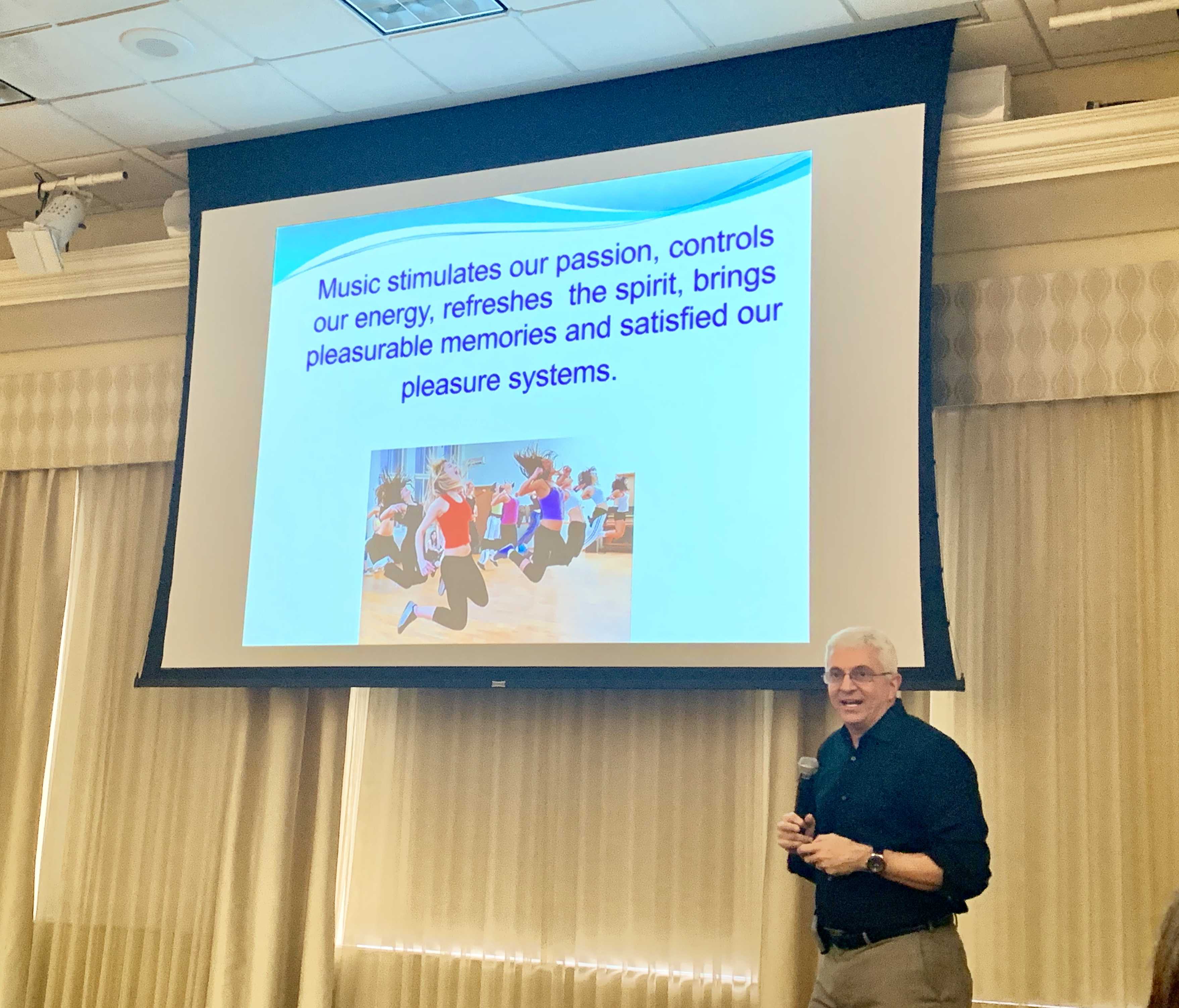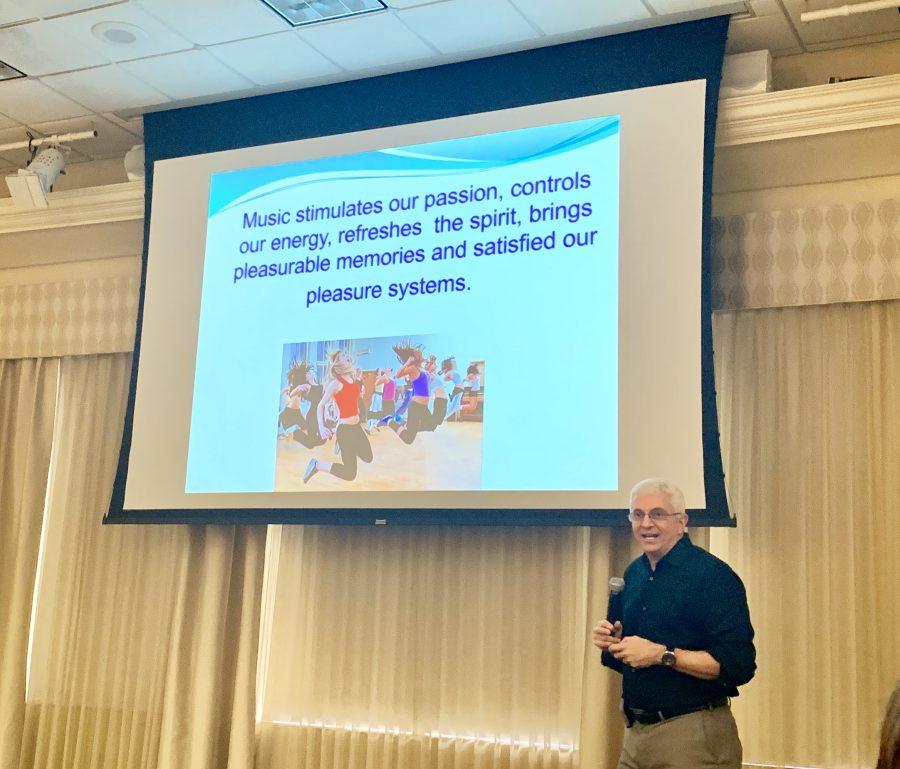
On Feb. 13, CF welcomed local neurologist José Gaudier to speak about music and the brain. This lecture took place in the Webber Center. The lecture was attended by students and the public.
Music is not just moving, but it can even get the body’s internal ecosystem moving as well. According to Gaudier, music has been found to improve the immune system. Not only can the immune system be strengthened through musical tones, but healing can also be accelerated.
The arts are big on the CF campus. There are degrees for the performing and visual arts which consist of dance, music, and theatre. The options for visual arts include digital media and studio art.
Gaudier began his lecture divulging into the history of music. He explained that many cultures claim to have discovered music. However, the first records of music dates back to 55,000 years ago.
He then presented MRI and CAT scans. There were two scans which were brightly multicolored with blue, yellow, red, and green. Gaudier explained that one of the scans were from a skilled musician and the other an average listener.
Depending on the listener, the brain can react to music in different ways. Skilled musicians had fewer areas in the brain activated, whereas the typical listener had a much more active brain. Gaudier explains that the difference is related to the amount of experience with music. Either way, the brain while listening to music regardless of the person is a much more active brain than a brain at rest.
Haley Zink, a student at CF, attended the lecture since her major is for music education. She found that she was able to relate the lecture to music and education. She attends many lectures for her major.
“I liked it, and thought the lecture was very interesting,” said Zink.
It was stated that music is rewarding for the brain. The brain lit up in an MRI the same way it would light up when experiencing pleasure. Gaudier stated that music was like an auditory drug.
Hailey Welch, a student at CF who is majoring in music, and works at AdventHealth Ocala. She was interested in ways she could help her patients out. Welch would like to transfer to a university in the future and do music therapy.
“The whole presentation was interesting,” said Welch. “It could help me figure out how to help them.”
Gaudier then went into different diseases that deal with art, music, and sound. One particular disease he spoke about was synesthesia. This disease can cause people to hear music when looking at a color. Another version of this is seeing certain colors when listening to music.
Music can also have health benefits, Gaudier explained. Music therapy is becoming increasingly common with Parkinson’s and Dementia patients. Some patients have shown a lot of improvement just by listening to their favorite music.
Looking to find out more events that are happening on campus? CF makes it easy with their calendar that can be found at http://cf.edu/community/pr/events/index.html.
Story and photo by: Julia Barona Brodmerkel



